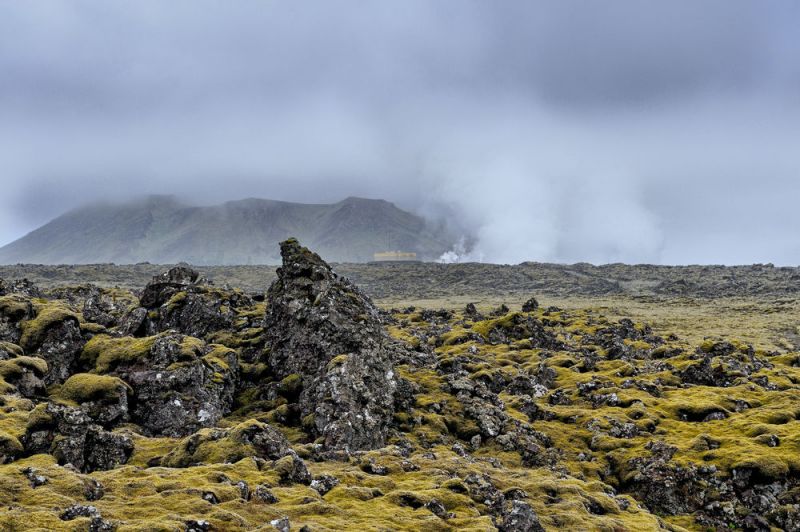Scientists Drill into Volcano to Harness its Energy
Published on by Water Network Research, Official research team of The Water Network in Academic
In the case of volcanic geothermal energy, the heat comes from 'supercritical water'. This could create up to 10x the power output of other geothermal sources.

Volcanic landscape on the Reykjanes Peninsula in Iceland. Credit: Reykjanes Peninsula image via Shutterstock
Scientists studied the volcanic system at Reykjanes Peninsula in Iceland, which has been dormant for more than 700 years, according to a hazard assessment by Verkis Consulting Engineers for Invest in Inceland.
The depths of Reykjanes' geothermal field — an area with high heat flow — had never been explored, researchers with the Iceland Deep Drilling Project (IDDP) said in a statement. Beginning in August 2016, the IDDP spent 168 days drilling into the volcanic belly of Reykjanes. This well was completed on Jan. 25, reaching a record-breaking depth of nearly 3 miles (4.8 kilometers).
At this depth, the hole does not enter the magma chamber but does penetrate the rock surrounding it, which the researchers measured to be about 800 degrees Fahrenheit (427 degrees Celsius).
Geothermal energy uses the heat trapped beneath the Earth's surface to generate electricity. Conventional geothermal energy utilizes steam from natural sources such as geysers, or by drawing water from the hot, high-pressue depths of the Earth. The hot vapors are then used to drive electric turbines.
In the case of volcanic geothermal energy , the heat comes from "supercritical water". The researchers explained that energy from so-called supercritical water is much higher than conventional geothermal steam. When molten rock and water meet, the extreme heat and pressure bring water to a "supercritical" state, where it is neither liquid nor gas. In this form, the water can carry more energy than normal steam, which could create up to 10 timesthe power output of other geothermal sources.
Research will continue through 2018 to explore how the volcano's thermal energy could be used, including as a form of alternative energy, according to IDDP scientists.
Read more at: Live Science
Media
Taxonomy
- Energy
- Energy Efficiency
- Thermodynamics
- Energy-Water Nexus
- Thermal Storage
- Water Energy Storage
- Energy Conservation